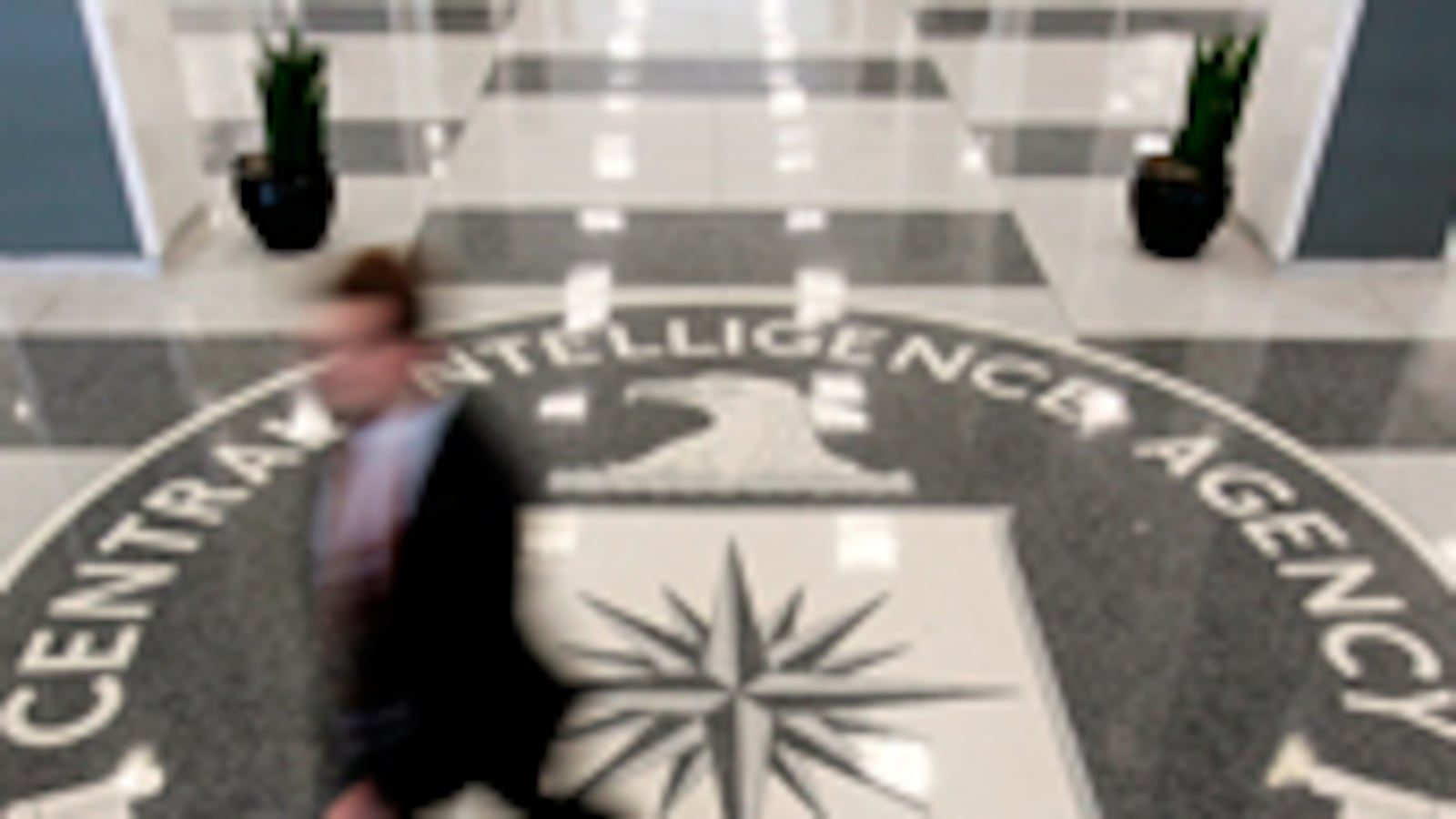
They’re shocked, shocked to find that the torture’s going on. All those Democrats in Congress who now profess indignation over President Obama’s refusal to prosecute CIA officials for practicing “enhanced interrogation techniques” on al Qaeda prisoners: It would be the very definition of chutzpah if only it weren’t so laughable.
Because they knew, of course. Back in 2002, the CIA gave dozens of briefings on Capitol Hill, including a super-secret “virtual tour” of their agency’s “black sites” with all the grisly details of the interrogation techniques they were planning to use on the bad guys, including waterboarding. Among those Democrats briefed were now-House Speaker Nancy Pelosi and Rep. Jane Harman. And no one said a word.
We want the CIA to do our dirty work until we don’t, and then we want them to take the fall.
Actually, Jane Harman later claimed she wrote a classified letter of protest to the CIA, which she couldn’t discuss because of the rules of secrecy and all that. Fortunately, her letter was declassified last year. It turned out to be a toothless warning to the CIA’s general counsel not to destroy interrogation videotapes (though the CIA did so anyway). And as for torture? Her umbrage was not exactly blistering: “In particular, I would like to know whether the most senior levels of the White House have determined that these practices are consistent with the principles and policies of the United States. Have enhanced techniques been authorized and approved by the president?”…
Ah. In other words, does the White House know what you guys are up to? Not “torture is reprehensible; how dare you blacken our names.” It was little more than C.Y.A. stuff.
Fine: That was then, this is now. That was a few months after the 9/11 attacks, when we were all shell-shocked. Thousands of Americans had been killed. We’d do anything to get the guys who did it. Congressional intelligence oversight was largely a matter of “Do whatever it takes.”
Until the tide turned. Now they want a criminal inquiry.
Well, not really. They say they do but they don’t, most of them. What we’re seeing is little more than that kabuki dance of outrage, a hallowed Washington tradition as old as the Gridiron Dinner. It’s the way our politicians balance the books, make up for all the times they looked the other way. We want the CIA to do our dirty work until we don’t, and then we want them to take the fall.
The truth is, all the CIA’s troubles come from the White House.
Why did the CIA start interrogating al Qaeda prisoners? Because that’s what the White House—and Congress—wanted. So what about the colossal intelligence failure of 9/11—how could the CIA not have known an attack was imminent? Oh, they knew; believe me, they knew. This wasn’t a failure on the part of the agency’s intelligence collectors and analysts. CIA Director George Tenet apparently failed to get the president and his national security adviser, Condoleezza Rice, to pay attention. Or perhaps the White House didn’t want to hear it. However it happened, it was of course the CIA that got tarred with the brush of incompetence.
Or take another recent putative CIA disgrace: How could we have gone to war against Iraq over Saddam Hussein’s possession of weapons of mass destruction, only to find out that there weren’t any? The CIA knew there were no WMD (my sources on this are impeccable). Whether the truth ever made its way into the Oval Office, I have no idea.
The CIA, Obama said in a speech Monday at agency headquarters in Langley, is “the tip of the spear.” But spears don’t throw themselves. Back in 1960, President Eisenhower told his CIA director, Allen Dulles, that he had a stone in his shoe: Patrice Lumumba, the first elected prime minister of the Congo. Allen Dulles subsequently fired off a cable ordering Lumumba’s “removal” as “an urgent and prime objective.” When the CIA’s botched attempts to assassinate Lumumba came out during the cataract of embarrassment that was the 1973 Church Committee hearings (along with other “family jewels” like trying to slip Fidel Castro a poisoned cigar and a wide-reaching, ill-conceived program to conduct domestic surveillance of U.S. antiwar protesters) it was, of course the CIA that took the hit. Not Eisenhower, who was by then long gone.
Then there was the now largely forgotten Iran-Contra scandal of the Reagan years. (Remember: We sell weapons to Iran through Israel at an jacked-up price, Iran releases some of the U.S. hostages being held in our embassy in Tehran, and the profit gets channeled to the anti-Communist Contras in Nicaragua). The White House ordered it, knew all about it—but it was a couple of CIA old-timers (and Oliver North) who got hung out to dry.
Espionage is a dirty business. There’s always blowback. The CIA was in bed with some decidedly sketchy types in Nicaragua, some of whom were also deep into drug trafficking, so in the late 1980s the agency was accused of causing the crack epidemic in the U.S. And when it came out that the agency had been giving money to a Guatemalan colonel who had tortured Americans (see Thomas Powers’ America’s New Intelligence War), Congress pressured the CIA to purge 1,000 secret informants from its payroll: the infamous “asset scrub” of 1995-96. After September 11, 2001, came the cries in Congress: Whatever happened to human intelligence? How come the CIA doesn’t have any secret informants in terrorist groups?
Anyone who really thinks that the only way to stop such wrongdoing is to prosecute those CIA officials who did what the White House told them to do doesn’t understand how the secret intelligence world works. In his book America’s New Intelligence War, Powers recalls a sign hanging over the desk of a CIA operative in Rome that said “Big ops, big problems... No ops, no problems.” The CIA, despite its cowboy image, is in fact in many ways a timorous, risk-averse bureaucracy. The thing they’re most afraid of is stirring up trouble. They just want to do their job. In this land, there are no mistakes, no misdeeds, until they’re publicly revealed: The most powerful weapon is disclosure. CIA officials (and I’ve known quite a few) for the most part take pride in the importance of their work—yet they can’t talk about it, can’t tell their wives and kids, can’t boast of their accomplishments in the alumni notes. But they do want to be able to hold their heads up. The shame of revelation is punishment enough.
Correction: I’d like to blame an editing error, but actually I blame my own faulty memory: the arms-for-hostages deal that lead to the Iran-Contra affair was actually spurred by the kidnapping of six U.S. hostages in Beirut in the mid 1980s by Hezbollah, controlled by the Iranian Revolutionary Guards.
Joseph Finder is the author of numerous bestselling novels including Power Play, Nightmare, and Vanished (coming August 2009). Visit his Web site.






